
While its true purpose is still debated, as well as who built it over several millennia, it remains an iconic structure that has inspired millions of people to visit and ponder. Originally thought to be built as a Druid calendar, it is now known to pre-date the Druids. It has been speculated to have been built as anything from a meeting place, a site for ritualistic sacrifice, a sign of the wealth of the territorial leaders of the time, an agricultural calendar, and a sort of astrological clock, among dozens of other hypotheses.
As it was constructed in phases over thousands of years, it is likely to have served many purposes. Built of Sarsen, a type of sandstone, and an array of igneous rocks generically called "Bluestone," this arrangement is thought to have begun being built at the end of the Stone Age, around 5,000 years ago. Evidence of additions and alterations as recently as 2,000 BCE show that it remained a work in progress for some time.
There are thousands of sites around the world that can be considered to be stone circles of one form or another. In some cases, the origin and purpose are known or understood, and in many if not most others, there remains some mystery. Some sites are potential examples of nature depositing stones in a circular-like fashion, while others may be the work of hoaxes. Nonetheless, there are numerous examples of stone, and even wood circles that were placed or constructed by our ancestors for myriad purposes.
STONEHENGE REPLICAS
Stonehenge is hardly the only example of man-made, circular arrangements of monoliths. The British Isles are littered with them, as are many other sites throughout the world. Most are thought to be some kind of astronomical calendars or ritual sites. There are also numerous replicas of Stonehenge, with varying degrees of accuracy and whimsy.
This story is from the {{IssueName}} edition of {{MagazineName}}.
Start your 7-day Magzter GOLD free trial to access thousands of curated premium stories, and 9,000+ magazines and newspapers.
Already a subscriber ? Sign In
This story is from the {{IssueName}} edition of {{MagazineName}}.
Start your 7-day Magzter GOLD free trial to access thousands of curated premium stories, and 9,000+ magazines and newspapers.
Already a subscriber? Sign In
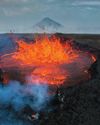
THE BRIGHT SIDE OF VOLCANIC ROCK
As a mineral resource, volcanic rock is decidedly short on glamour.
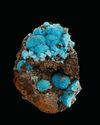
The Other Copper Minerals
12 Lesser-known Collectible Species

MINERAL COLLECTING -AND ROCK & GEM
Evolving Together FOR 54 YEARS

Gemstone Trends
A Look Back at 2024 & What to Expect in 2025
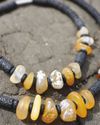
How to Make a GEM BEAD NECKLACE
No Lapidary Experience Needed!
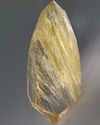
Framing Nature's Art
Faceting Rutilated Quartz for Beginners
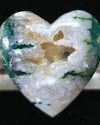
BEDAZZLED BLUE SEAM AGATE
More than several centuries ago, mining was the profession most often seen as befitting of men.
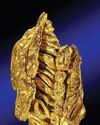
ROCK & GEM FIELD GUIDE:
Spinel is a captivating gemstone with a rich history of being mistaken for gems like ruby and sapphire.
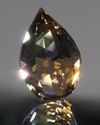
SNAKE SCALE DROP 1.5:1
This Faceting Focus is revisiting the briolette gemstone design because of its popularity with independent and hobby gemstone faceters.

STONE CHIC
How Earth-Inspired Decor Brings Comfort to our Home